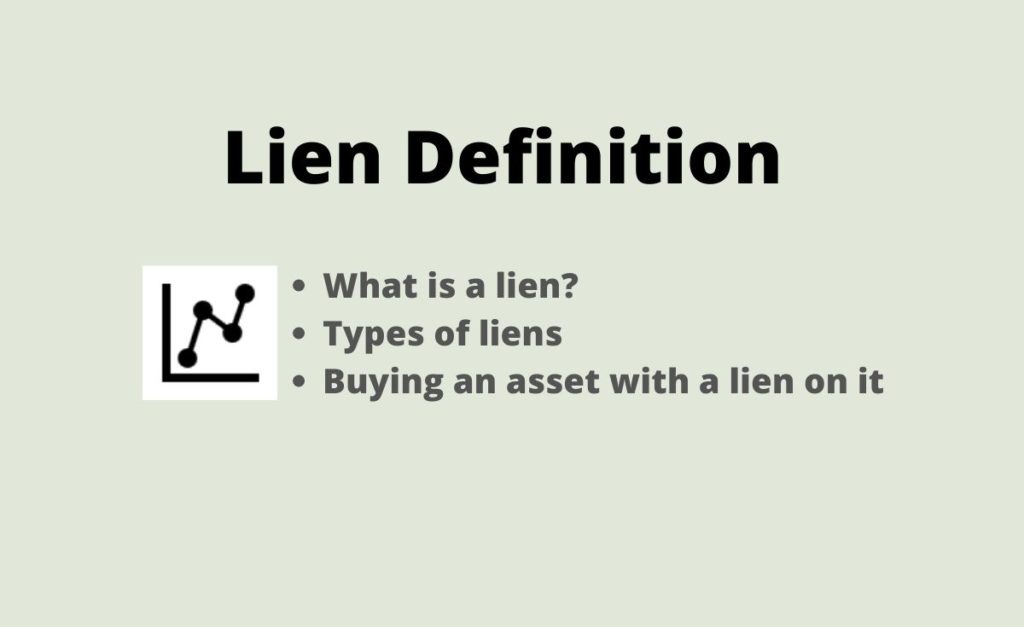What is a lien?
A lien is a legal claim on someone’s asset especially when the asset was used as collateral in order to secure a loan or a mortgage, according to Levelset. When a person seeks a loan to buy an asset such as a car, the lender will put a lien on the title of the property.
This means the owner cannot legally claim the ownership of the asset until the lender is fully paid. In addition, if the owner fails to pay the loan, the lender will take the asset and liquidate it to recover the unpaid amount.
Who can put a lien on a property?
Liens come in many types and forms. The following are some of the entities that can put a lien on a property.
- Governments
- Businesses
- Financial institutions such as banks, credit unions, and other lending institutions
What are the types of liens?
There are many types of liens and some of them are listed below.
- Tax liens: Tax liens are usually put on the properties of taxpayers due to crimes related to taxes. For example, if a person did not pay taxes related to a property they own, tax authorities can put a lien on the property. This means that the owner of the asset must pay the tax in question in order to remove the lien from the property. If the owner fails to make the payments necessary, the asset can be sold to recover unpaid taxes.
- Bank liens: Bank lens are related to loans taken to buy assets. The borrower gets a loan from a bank and uses the asset they are buying as collateral. The bank then puts a lien on the asset which gives them legal rights to sell the asset in case the borrower defaults on the loan payments. Common known bank liens are related to car loans.
- Real estate liens: These liens are related to mortgages that borrowers get to buy houses and commercial properties. The borrower gets the mortgage and the lender puts a lien on the house. Should the borrower fail to make the mortgage payments? The bank will take the house and sell it to recover the unpaid balance on the mortgage.
- Judgment liens: When there is a lawsuit against the assets of a person, the court will put a lien on the assets. These assets can be sold to cover the defendant’s claims from a lawsuit if the owner loses in court.
- Mechanic’s liens: Mechanics’ liens are related to unpaid services performed by contractors.
>>MORE: Property Tax Assessment & Assessed Value
What should you do before you buy an asset with a lien?
If there is a lien on an asset, the person who holds the lien has the legal rights on the asset. This means the lien holder can sell the asset to recover their claim.
For this reason, an asset with a lien cannot be sold until its owner has consent from the lien holder.
For example, if you have a mortgage on your house, you cannot sell the house without approval from your lender.
At the same time, buyers should be aware of liens and how they will affect the outcome of the transactions. Usually, professional and legal representatives can help ease the process.
For example, if you are buying a house with a lien on it, it will be easier to use a real estate agent and your real estate attorney. This is because they will make sure that every step you are taking aligns with the law. In addition, they can help you avoid legal battles and save you a lot of money in the process.
Note: Never buy an asset with a lien on it without having approval and working with all parties involved. For example, there are assets that have multiple liens on them such as an apartment complex where multiple lenders loaned money to the developer. If this is the case, you must work with everyone who holds a lien to avoid legal issues and loss of money.









